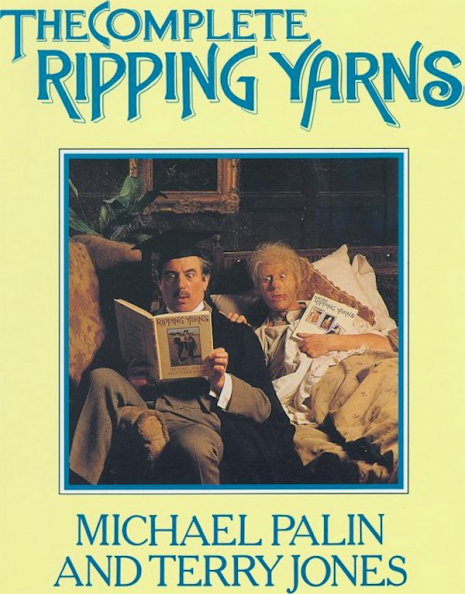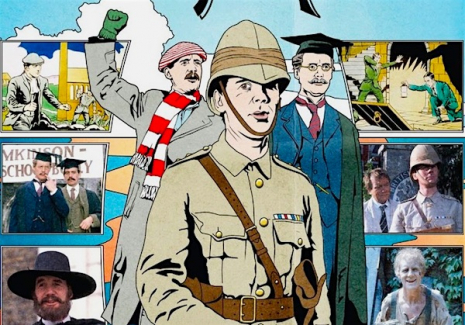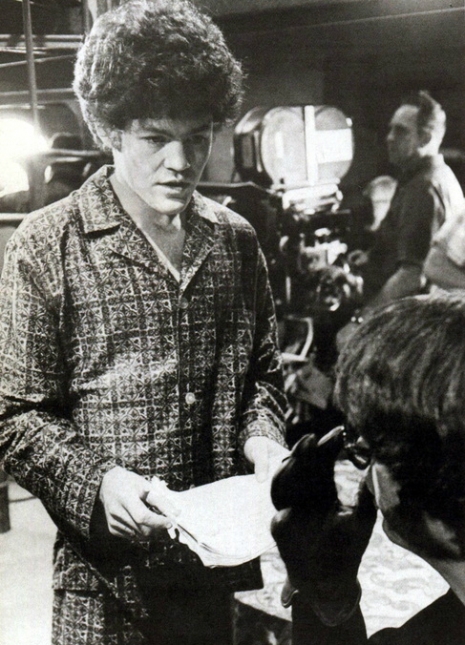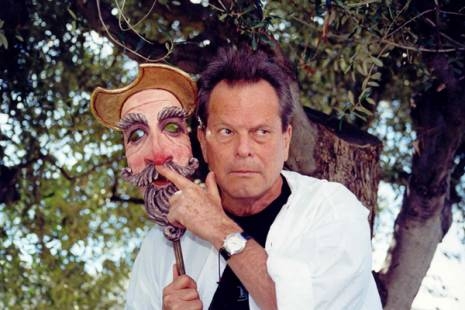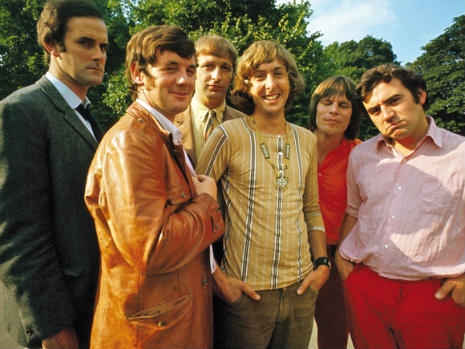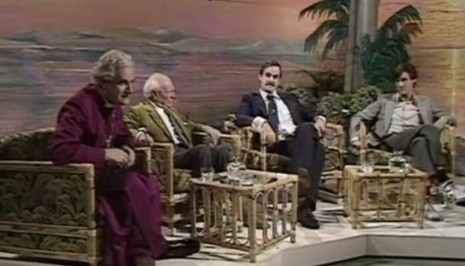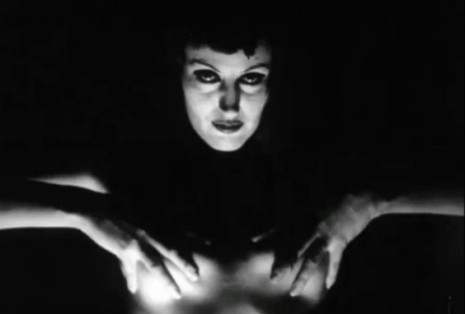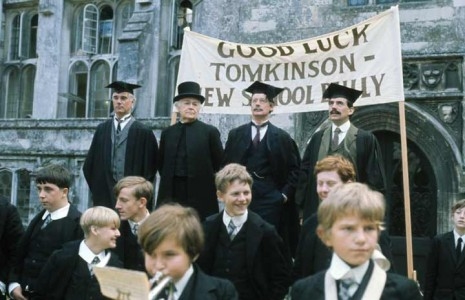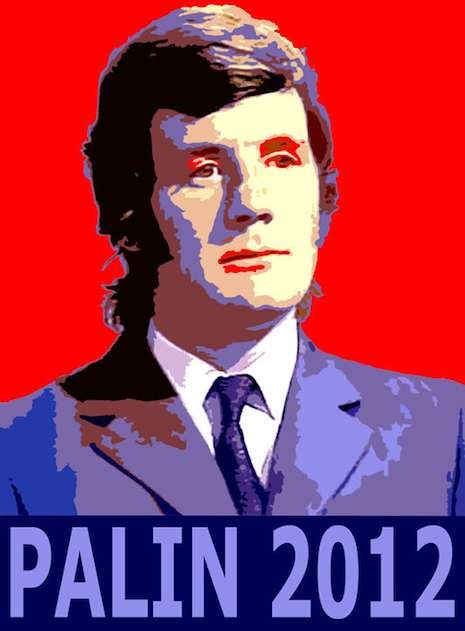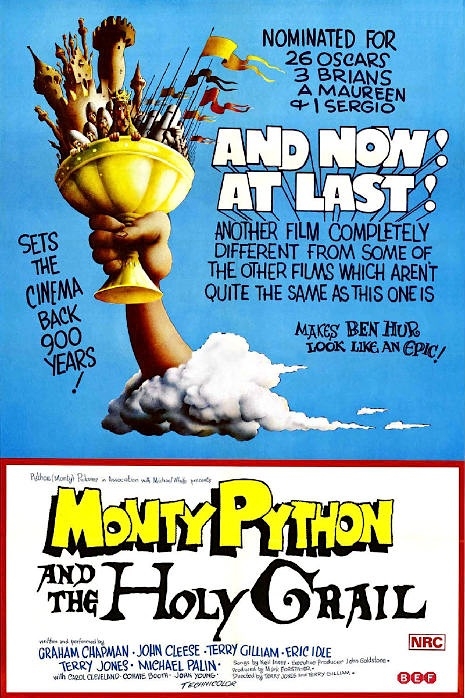
At the end of April 1974, the Monty Python team arrived in Ballachulish, Scotland, for a month’s filming on their second feature Monty Python and the Holy Grail.
After more than a year of careful planning, writing and lengthy negotiations, the Pythons (Graham Chapman, John Cleese, Terry Gilliam, Eric Idle, Terry Jones and Michael Palin) hoped to make a “really good comedy film” that could stand alone and wouldn’t rely on the success of their TV series.
In his diary, Michael Palin detailed the film’s progress from initial idea to finished product.
Monday, March 5th [1973]
A Python meeting at Terry’s. The first time since the third LP in September that we have all contributed to a creative enterprise—in this case the second Python film. It was in many ways like a typical Python working day. Graham arrived late, and Terry made the coffee—and there was the usual indecision over whether to have a small lunch in, or a blow-out at one of Camberwell’s few restaurants…
But for me, the most heartening thing of all was the quality and quantity of the writing that Python has done over the last week… Today we proved that Python can still be as fresh as three years ago, and more prolific.
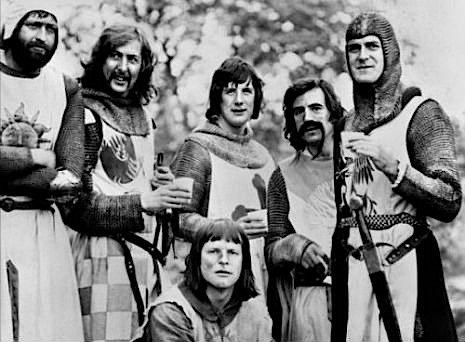
The team were also working on a stage show, a new book, another TV series (this time without Cleese) and their own projects. In amongst all this, each Python had to find time to work on the film script.
Tuesday, November 27th [1973]
Worked at Terry [Jones’] in the morning. A very poor session. We both wrote 75% tripe, and seemed unable to summon up excitement or concentration about the film. The most I could manage was a sketch about Galahad having smelly breath.
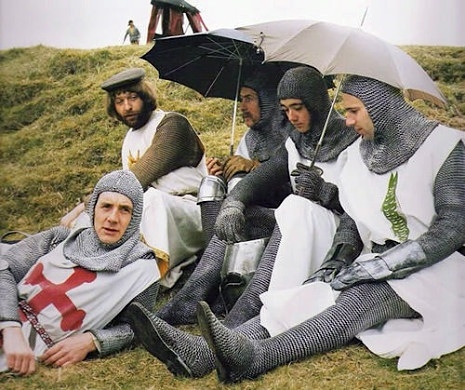
Tuesday, January 15th, London [1974]
Python meeting at T. Gilliam’s… There was some fairly bitter debate over timing of the film and rewriting. In the end, after the personal differences had been aired, we got down to some fast and efficient business, dates were agreed and there was a very useful hour’s discussion of the film. An idea I had for the gradual and increasing involvement of the present day in this otherwise historical film was adopted as a new and better way of ending it…
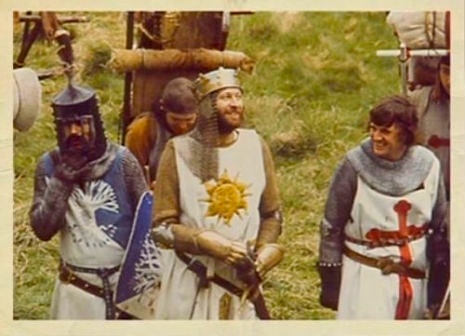
With the script finished, casting and locations chosen, the filming was scheduled to commence in the spring with Terry Jones and Terry Gilliam co-directing.
Tuesday, April 30th, Ballachulish
First day of filming. Woken at 6.45. Sunshine streaming through the curtains. Into chainmail and red-cross tabard. A difficult day today—the Bridge of Death scene where Eric and I die and Lancelot is arrested by the police…
Camera broke midway through first shot.
The day is hastily rearranged and, from having been busy, but organised, it is now busy and disorganised… Graham as King Arthur got vertigo and couldn’t go across the bridge. He spent the day unhappily cold and shaking. Eric and I and John sat around listening to stories from the Mountain Rescue boys about how many people perish on these spectacular mountains each year. Five or six deaths usually.
Terry J comes up to me in the afternoon and says he’s ‘a bit worried about Terry G’s priorities in choice of shots’—we run two and a quarter hours overtime, until nearly 8.00. Everyone in the young unit seems happy enough.
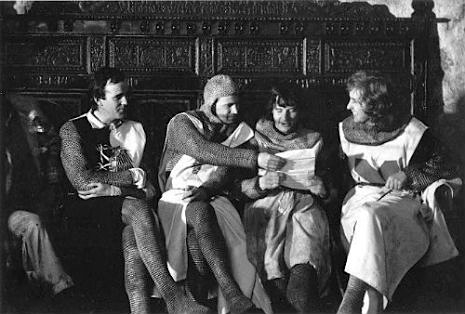
Wednesday, May 1st, Ballachulish
Lunch with Mark [Forstater, producer], Eric and John, who is trying to read a book of philosophy and is constantly rather cross—but quite fun. He continually goes on about the ‘bovine incompetence’ of the waitresses—who are no Einsteins, but good-hearted Scottish mums.
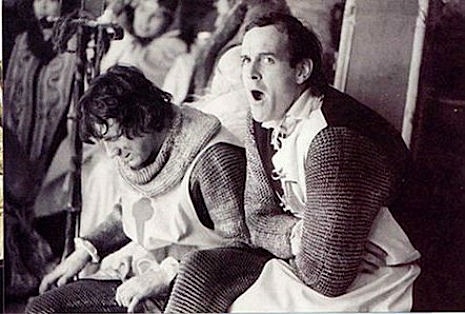
Thursday, May 2nd, Ballachulish
Eric and I have another lazy day at the rest home for officers, while Graham and Terry are finding the Castle Aaargh! We go to the location about 2.00, and they still haven’t had a lunch break.
Graham is getting shit poured all over him. He’s taking a great deal of punishment in these first few days of filming.
Friday, May 3rd, Killin
A slow day’s filming, it seems. Rather a lot of worried faces when we run into overtime again…
Julian [Doyle] took me aside after filming today as we walked down the hillside and said he was worried that the way things were being shot this week was putting a big strain on the budget (almost the entire £1,000 allowed for overtime was spent in this first week) and there would have to be some compromises by the Terrys somewhere along the line.
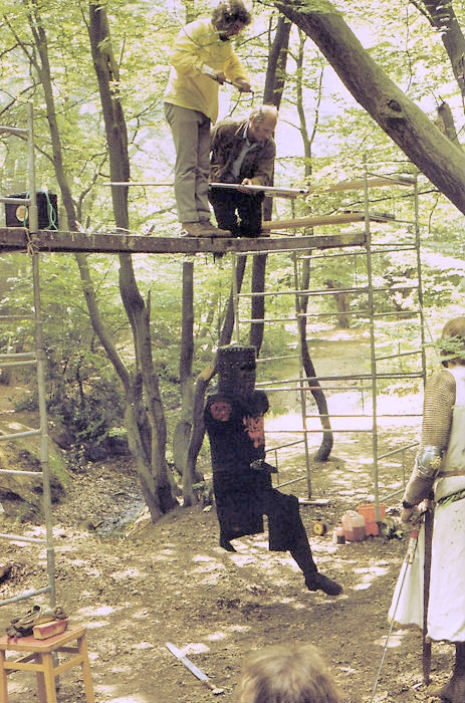
Saturday, May 4th, Killin
A good day’s filming at last. Even John and Eric aren’t grumbling, even tho’ we go into overtime again.
Monday, May 6th, Killin
John and I talked about life. I sympathise quite a lot with his urge to be free of the obligations and responsibilities of the Python group—but I feel that John is still tense and unrelaxed with people, which compounds his problems. He has more defences than Fort Knox.
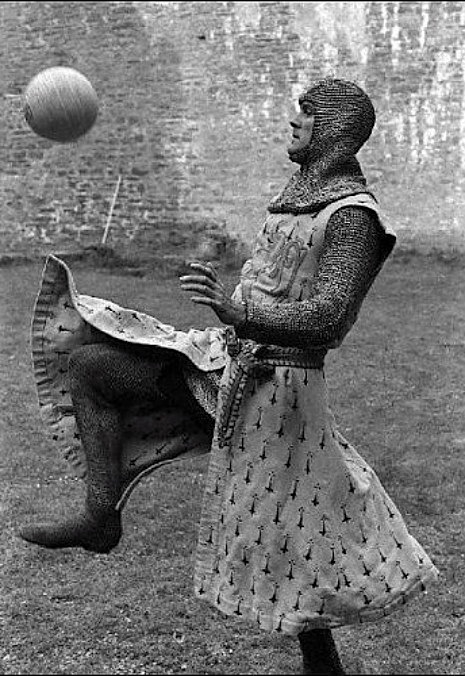
Tuesday, May 7th
Today we shoot the Camelot musical sequence. A long and busy day for 50 seconds’ worth of film…
We pass the afternoon with a game of football. Despite the chainmail, some quite good moves.
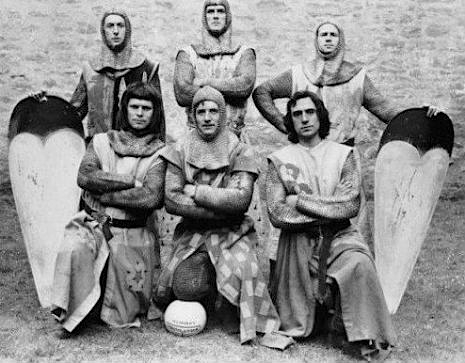
Thursday, May 9th
Amazing how much eating one does on filming. If you get up at 7.15 it is nice to have a cup of coffee at least before going to over to the Doune Rural Hall (headquarters of the WI [Women’s Institute]) and, with a full breakfast menu available, I am quite often tempted to a kipper or even a piece of toast. Then, at 10.30 on set, there is more coffee and soft, delicious bap rolls with sausages and scrambled egg. Ron Hellard supplies a gargantuan lunch with much pastry and potato, which is also hard to resist. At around 4.00 tea/coffee and cakes (v. good home-made currant buns) and, after a drink back at the hall at the end of the day, and a look at the rushes (shown extraordinarily enough, in the Silver Chalice Bar!), there is a four-course set meal at the hotel. Consumption is about double what one eats at home.
Saturday, May 11th
John is doing the Taunter on some artificial battlements at the back of the castle. He’s getting very irritated by TG’s direction of his acting. TG tends to communicate by instinct, gesture and feeling, whereas John prefers precise verbal instructions. So TJ has to take over and soothe John down.
Monday, May 13th
The day of the Mud-Eater. Clad in rags, crawling through filthy mud repeatedly and doggedly, in a scene which makes the flagellation scene from Seventh Seal look like Breakfast at Tiffany’s.
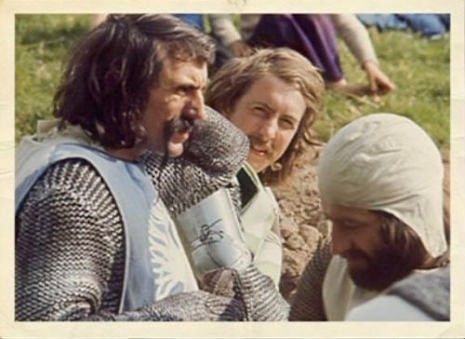
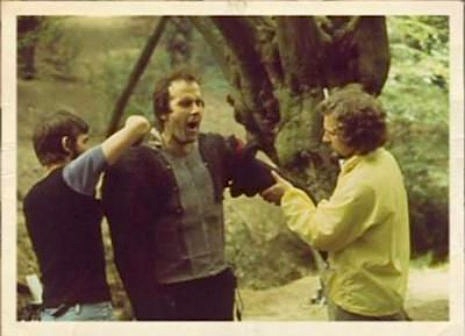
Friday, May 24th
...filming is an appalling process for reducing an actor to the role of machine.
In the Knights of Ni, for instance, I was to do close-ups first. directly in front of me are a group of anoraked people squatting down, far more preoccupied with their equipment than me. Someone reads the lines off in a flat voice, which gives you little encouragement. An eyeline keeps you looking at no one at all. Two huge white polystyrene reflectors enclose me on either side—it feels like acting in a sandwich.
Wednesday, May 29th
John, dressed as a magician, spent much of the morning on the narrow top of an extremely impressive pinnacle of slate, across the quarry from us.
Twice the cameras turned. Twice John, towering above the green and pleasant vistas of the Trossachs, gave the signal to summon forth mighty explosions. Twice the explosions failed, and John was left on this striking but lonely pinnacle. He kept in good form, reciting his old cabaret monologues across the quarry, but it was a hard start to the day for him—and he was cold and subdued by the time he came back.
Friday, May 31st
The long and wordy Constitutional Peasants scene. Feel heavy dull and uninspired—wanting above all else for it to be the end of the day…
Terry Bedford [camera] is angry because Mark [Forstater, producer] has been trying to economise by buying old film-stock. Some of the film which has arrived today is six years old. Terry will not use it—in fact he threw a can into a nearby moorland stream—so we have 1,000 feet on which to do this entire scene…
I’m almost too tired to enjoy fully the elation at the end of the day, when the filming, or my part of it anyway, is finally completed. Want to jump up and down, but can’t. So I just stand there looking out over the Scottish hills, all grey and dusky as evening falls, and feel wonderfully free.
Extracted from Michael Palin’s Diaries: 1969-1979 The Python Years.
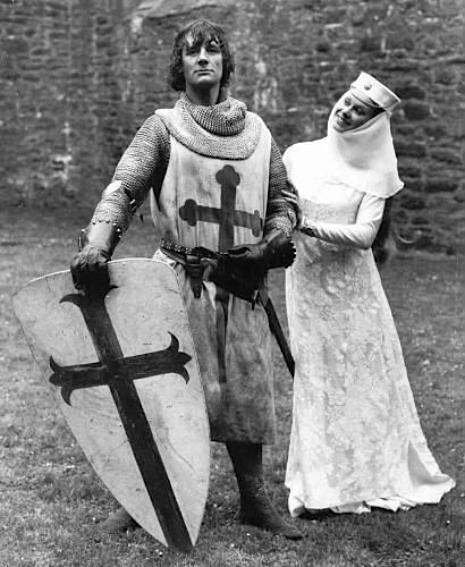
Monty Python and the Holy Grail was released in April 1975 and proved incredibly successful, hailed as one of the greatest comedies ever made, making millions in profit, and spawning Eric Idle’s multi-award-winning musical Monty Python’s Spamalot.
H/T Vintage Everyday
